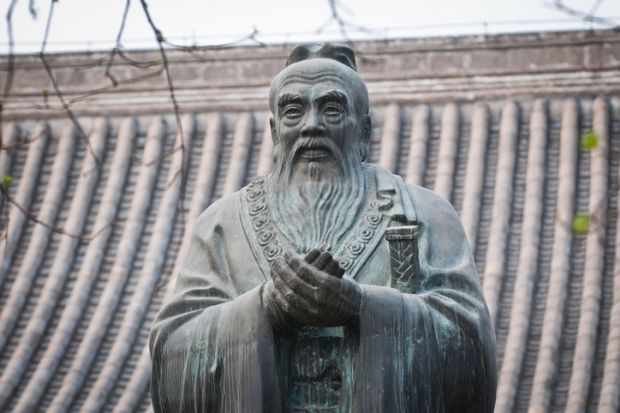Chinese students in the UK are being “manipulated and used” by the country’s embassy, MPs have been told.
At the meeting of the Foreign Affairs Committee, MPs questioned whether Chinese Confucius Institutes undermined academic freedom in UK universities, while a London School of Economics professor told them of a research centre director who lost their job in a row over funding from a foreign state.
The hearing, focusing on “influence in UK universities by autocratic states”, came after the US Senate criticised the hosting of Confucius Institutes by US universities, and while the Australian government considers whether Confucius Institutes at the nation’s universities should be registered as sources of foreign influence. An agency of the Chinese government provides funding and teachers for Confucius Institutes, which promote Chinese language and culture.
Speaking generally about universities’ links with autocratic states, Christopher Hughes, a professor of international relations at the LSE who appeared as a witness, told the committee that there was “bullying and pressure”. He added: “I’ve seen someone lose their position as head of a research centre over clashes over funding from a certain state.” He said he would not add further details.
Professor Hughes also highlighted the controversy over a sculpture at LSE which depicted a map showing China and Taiwan in different colours.
He continued: “There is evidence that some parts of the student body are being manipulated and used by the [Chinese] embassy and their agents, and that this is organised.”
He also said: “If you try to raise these issues, you end up being marginalised of course, and you become ‘a troublemaker’.”
Professor Hughes said on Confucius Institutes: “We have found the paper trail which takes this back to the office in Beijing which is part of the Communist Party of China.”
The LSE hosts a Confucius Institute for Business.
Bill Rammell, the University of Bedfordshire vice-chancellor who also appeared as a witness, said that, providing the “right checks and balances” were put in place by universities, “I don’t think international partnerships with autocracies are a threat to academic freedom”.
Mr Rammell, the chair of the MillionPlus association of modern universities, said one member of the group has a Confucius Institute and his understanding was that it teaches only Mandarin language and Chinese medicine. “Quite how that is promoting the merits of the Chinese Communist Party is a bit beyond me,” he added.
Tom Tugendhat, Conservative chair of the committee, at one stage read out a list of universities across the world that have opted to close their Confucius Institutes.
Bob Seely, another Tory member of the committee, highlighted the US and Australian government concern over Confucius Institutes, suggesting that “having that direct involvement of a one-party state” could “limit intellectual freedom”.
Mr Rammell highlighted the benefits to the UK from attracting international students and cautioned against “restrictions” being implemented without sufficient evidence, “that might come back to haunt us”.
Register to continue
Why register?
- Registration is free and only takes a moment
- Once registered, you can read 3 articles a month
- Sign up for our newsletter
Subscribe
Or subscribe for unlimited access to:
- Unlimited access to news, views, insights & reviews
- Digital editions
- Digital access to THE’s university and college rankings analysis
Already registered or a current subscriber? Login




